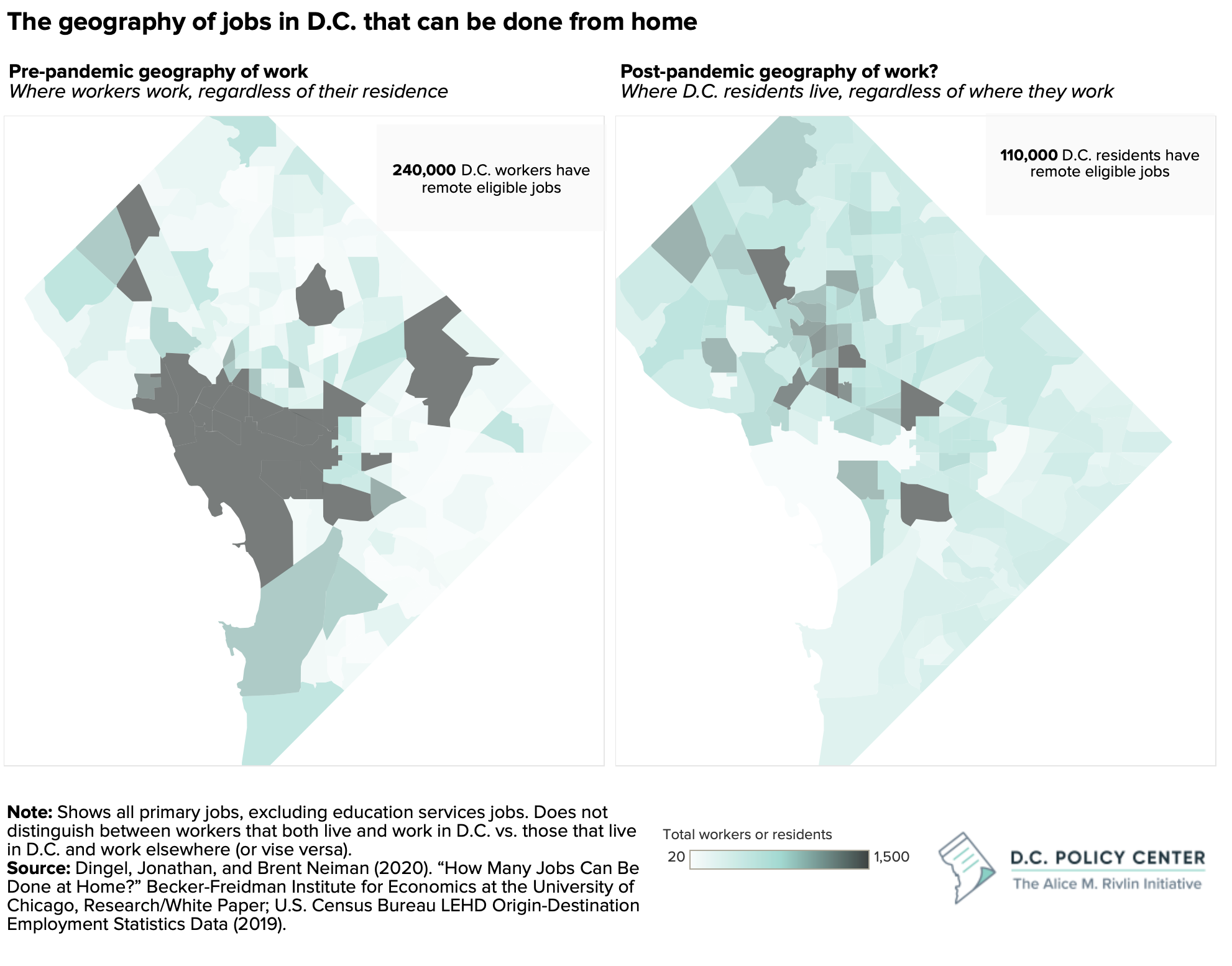
Using data from researchers at the Becker-Freidman Institute for Economics at the University of Chicago that estimates the share of jobs that can be done from home by industry paired with data on pre-pandemic commuting patterns, we mapped where workers in remote eligible jobs lived and worked prior to the pandemic. The results show that if workers continue to work from home, economic activity is likely to shift from downtown D.C. to D.C.’s mixed-use and university-based neighborhoods. It is hard to predict exactly how the economic activity in the region would shift if remote work continues, but past data offers the city some foresight into 1) how demand for the city’s space might change, and 2) how to maximize future revenue under changing conditions. In an upcoming brief, we will use pre-pandemic data to estimate how shifting worker preferences may impact the city’s tax base.
Remote work is likely here to stay and is breaking the relationship between where we live and where we work. This has implications on the District’s attractiveness, competitiveness, economic growth, and fiscal health. As workers spend less time near their workplaces and more time near their homes, it shifts the geography of work in the region, and thus, economic activity. It is hard to predict exactly how the economic activity in the region will shift as there are still a lot of unknowns:
- How many workers will shift to a permanent or hybrid work arrangement?
- To what extent will remote work alter where workers prefer to live?
- What will be the long-run equilibrium?
Despite these unknowns, we can use pre-pandemic data to begin to estimate how a shift to telework will impact the region’s geography of work. First, we know that the transition to remote work will most quickly impact those that can do their jobs from home, such as those in office-based industries. While many service jobs support office workers, there will likely be a delay in the market’s response to new long-term worker behavior, so for now we focus on the geography of the region’s jobs that can be done from home.
Researchers at the Becker-Freidman Institute for Economics at the University of Chicago estimate that 51 percent of all jobs in the D.C. metropolitan area can be done at home. This compares to a national average of 37 percent. This is in part driven by the region’s high share of workers with a bachelor’s degree or higher and makes the D.C. metropolitan area particularly vulnerable to the impacts the pandemic has had on commuting patterns, and thus, the economic loss that comes from a decline in daytime population.
If remote work continues, the geography of work in the region might shift from where workers in remote eligible jobs work to where workers in remote eligible jobs live. Within the D.C. metropolitan area, this would shift workers away from the region’s transportation lines and downtown D.C. to more residentially dense neighborhoods.
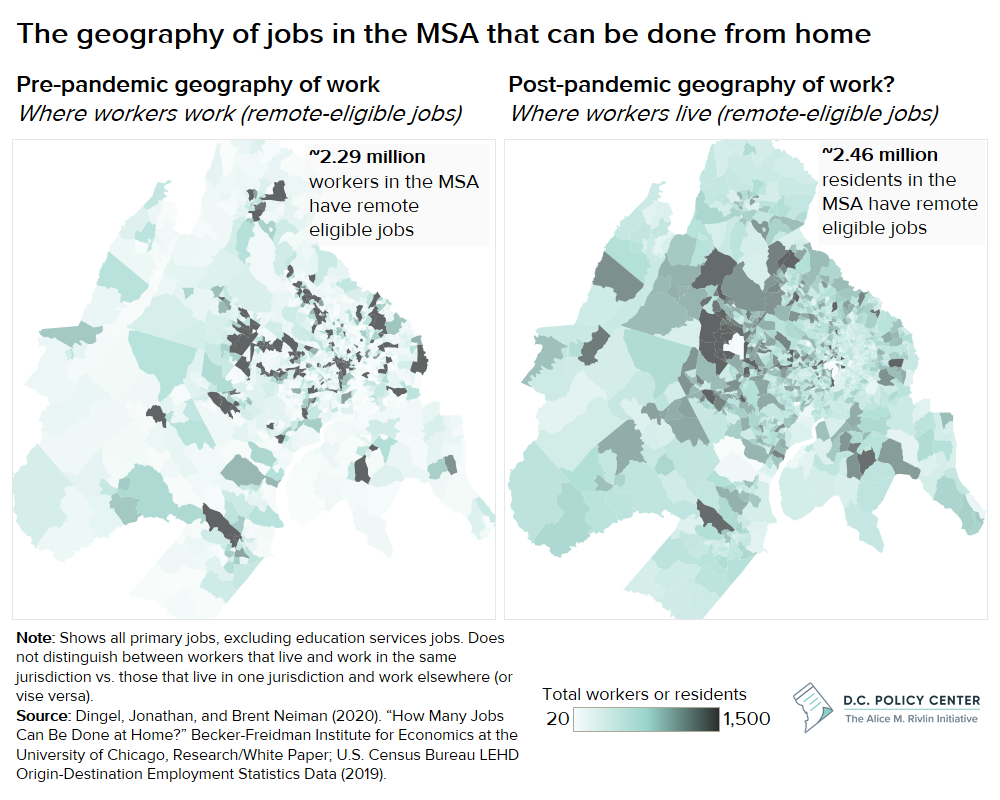
Focusing on the impacts within D.C. shows a potential shift in economic activity from downtown to the city’s mixed-use and university-based neighborhoods, such as Navy Yard and NoMa. This would disproportionately impact D.C.’s businesses and could alter where workers prefer to live.
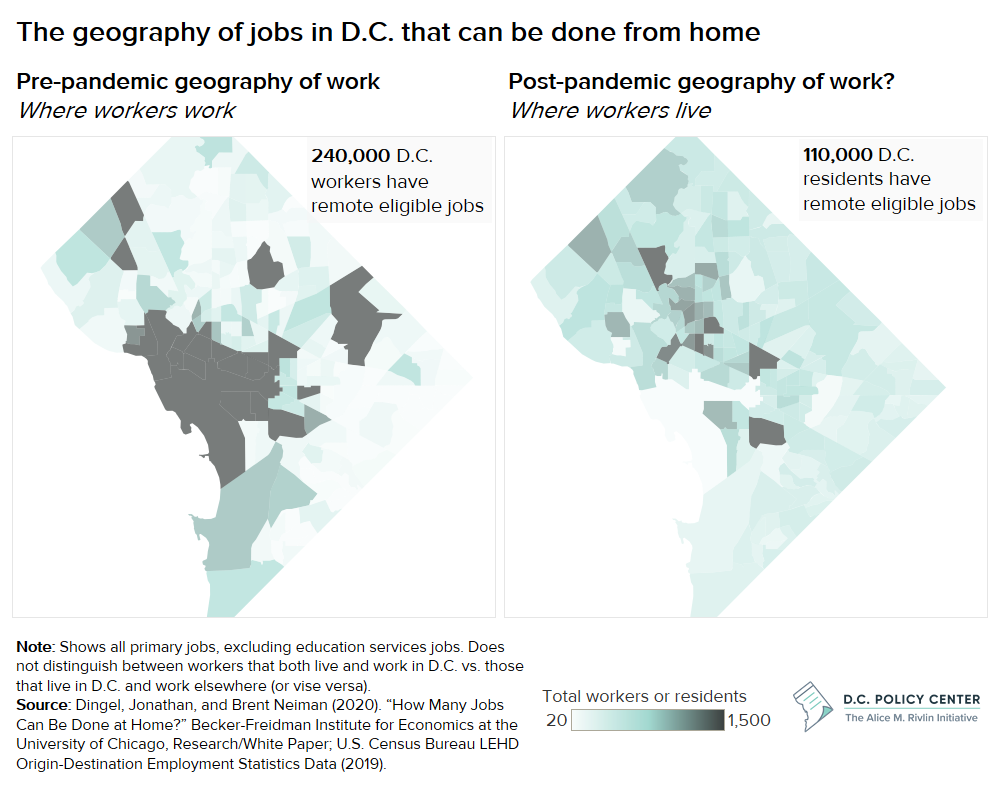
Within the region, D.C.’s economy is particularly at risk if remote work takes hold. Of the workers that can do their job from home within the D.C. metropolitan area’s core counties, 27 percent work in D.C. and only 15 percent live in D.C. Only Fairfax County has more workers that can easily do their jobs from home, but among the area’s core counties, D.C. has the greatest number of commuters to lose.
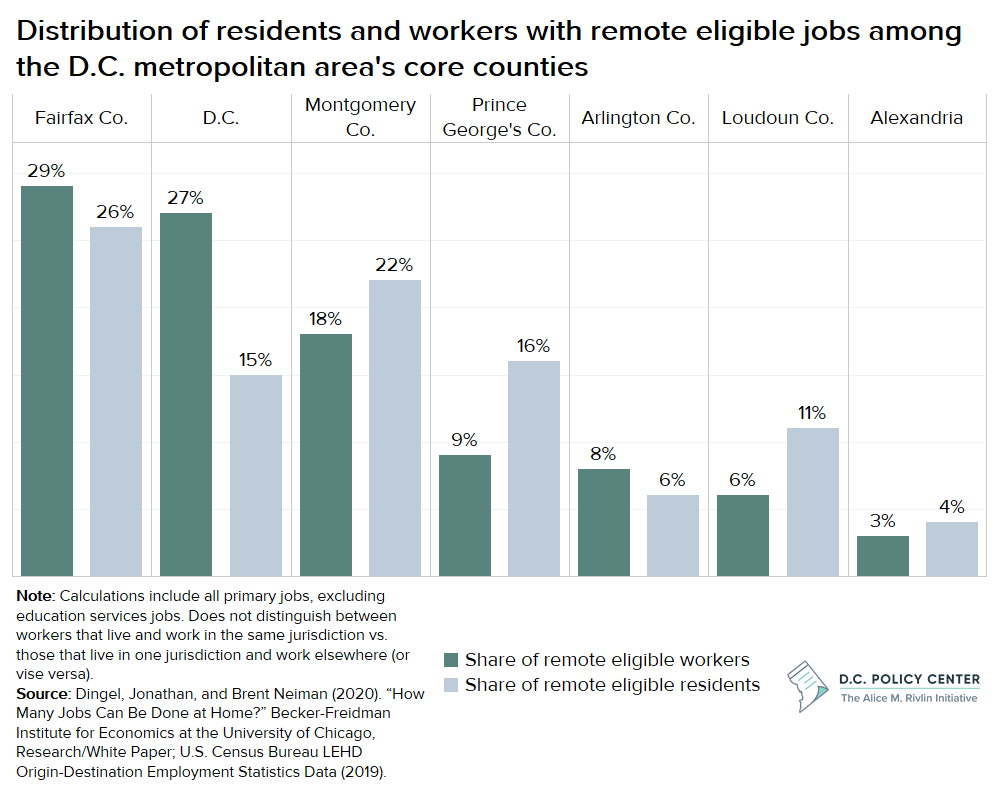
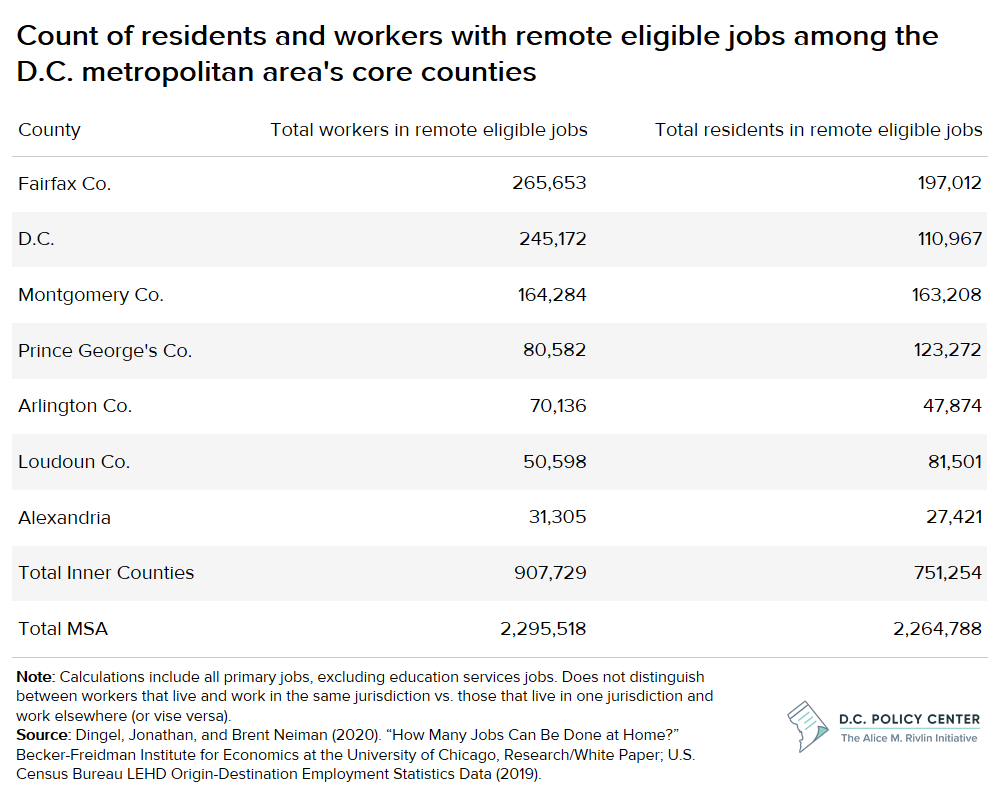
While the city does not have the power to change worker preferences, understanding the impact of remote work will allow the city to 1) adapt to how demand for the city’s space is changing and 2) maximize future revenue under changing conditions. In an upcoming brief, we look at the impact of remote work more closely, estimating what it means for the District’s general sales tax, commercial property, and income tax bases.
Sources
- Dingel, Jonathan, and Brent Neiman (2020). “How Many Jobs Can Be Done at Home?” Becker-Freidman Institute for Economics at the University of Chicago, Research/White Paper. Data on the share of jobs that can be done from home by industry can be accessed here: https://github.com/jdingel/DingelNeiman-workathome/
- U.S. Census Bureau LEHD Origin-Destination Employment Statistics Data (2019), accessed on March 10, 2022 at https://lehd.ces.census.gov/data/#lodes. LODES 7.5 [version].
Data notes
- Jobs in education services are excluded from all maps and calculations. The data suggests that 83 percent of jobs in education services can be done from home. While this may have been true when many schools were running virtually, it is not likely an accurate estimate in the long-term. For simplification and because we do not have survey data to recalculate the number, we excluded these jobs for now.
- All maps and calculations were created using the Residence Area Characteristics (RAC) and Workplace Area Characteristics (WAC) data files from LEHD Origin-Destination Employment Statistics (LODES). This data allows for more details on jobs by industry, but does not distinguish between inter-jurisdiction commuters vs. intra-jurisdiction commuters. In the upcoming brief, we also look at the Origin-Destination (OD) data file from LODES, which does not have detailed industry information, but distinguishes between inter-jurisdiction commuters vs. intra-jurisdiction commuters.
